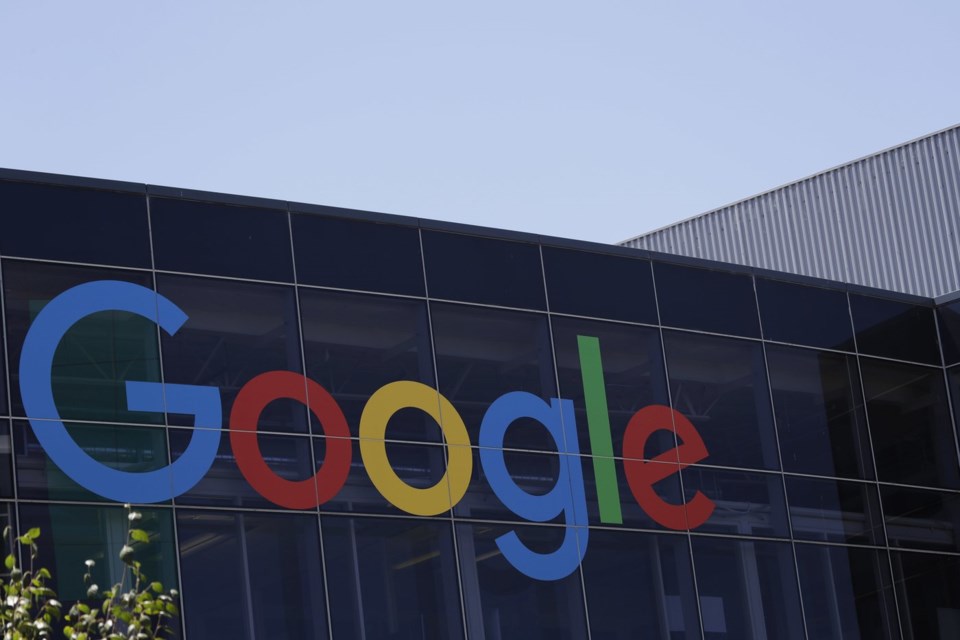LONDON (AP) — European Union regulators on Friday hit Google with a 2.95 billion euro ($3.5 billion) fine for breaching the bloc’s competition rules by favoring its own digital advertising services, marking the fourth such antitrust penalty for the company.
The European Commission, the 27-nation bloc’s executive branch and top antitrust enforcer, also ordered the U.S. tech giant to end its “self-preferencing practices” and take steps to stop “conflicts of interest” along the advertising technology supply chain.
EU regulators had previously threatened a breakup of the company but held off on that threat for the time being.
Google said the decision was “wrong” and that it would appeal.
“It imposes an unjustified fine and requires changes that will hurt thousands of European businesses by making it harder for them to make money,” Lee-Anne Mulholland, the company’s global head of regulatory affairs, said in a statement.
The decision was long overdue, coming more than two years after the European Commission announced antitrust charges against Google.
The commission had said at the time that the only way to satisfy antitrust concerns about Google’s lucrative digital ad business was to sell off parts of its business. However, this decision made only a brief mention of possible divestment and comes amid renewed tensions between Brussels and the Trump administration over trade, tariffs and technology regulation.
Top EU officials had said earlier that the commission was seeking a forced sale because past cases that ended with fines and requirements for Google to stop anti-competitive practices have not worked, allowing the company to continue its behavior in a different form.
It's the second time in a week that Google has avoided a breakup.
Google is also under fire on a separate front in the U.S., where prosecutors want the company to sell off its Chrome browser after a judge found the company had an illegal monopoly in online search.
On Tuesday, a U.S. federal judge found that Google had illegal monopoly in online search and ordered a shake-up of its search engine but rebuffed the government's attempt to break up the company by forcing a sale of its Chrome browser.
But the EU indicated that breakup option is not totally off the table. Google has 60 days to tell the Commission its proposals to end its conflicts of interest, and if the regulators aren't satisfied they will propose an “appropriate remedy.”
“The Commission has already signaled its preliminary view that only the divestment by Google of part of its services would address the situation of inherent conflicts of interest, but it first wishes to hear and assess Google’s proposal,” it said in a press release.
The commission’s penalty follows a formal investigation that it opened in June 2021, looking into whether Google violated the bloc’s competition rules by favoring its own online display advertising technology services at the expense of rival publishers, advertisers and advertising technology services.
Its investigation found that Google “abused” its dominant positions in the ad-technology ecosystem, the commission said.
Online display ads are banners and text that appear on websites and are personalized based on an internet user’s browsing history.
Mulholland said, "There’s nothing anticompetitive in providing services for ad buyers and sellers, and there are more alternatives to our services than ever before.”
Google is facing pressure on other fronts.
In a separate U.S. case, the Justice Department asked a federal judge in May to force the company to sell off its AdX business and DFP ad platform — tools that are also at the heart of the EU case. They connect advertisers with publishers who have ad space to sell on their sites. The case is scheduled to move to the penalty phase, known as remedy hearings, in late September.
Authorities in Canada and Britain are also targeting the company over its digital ad business.
The Associated Press



